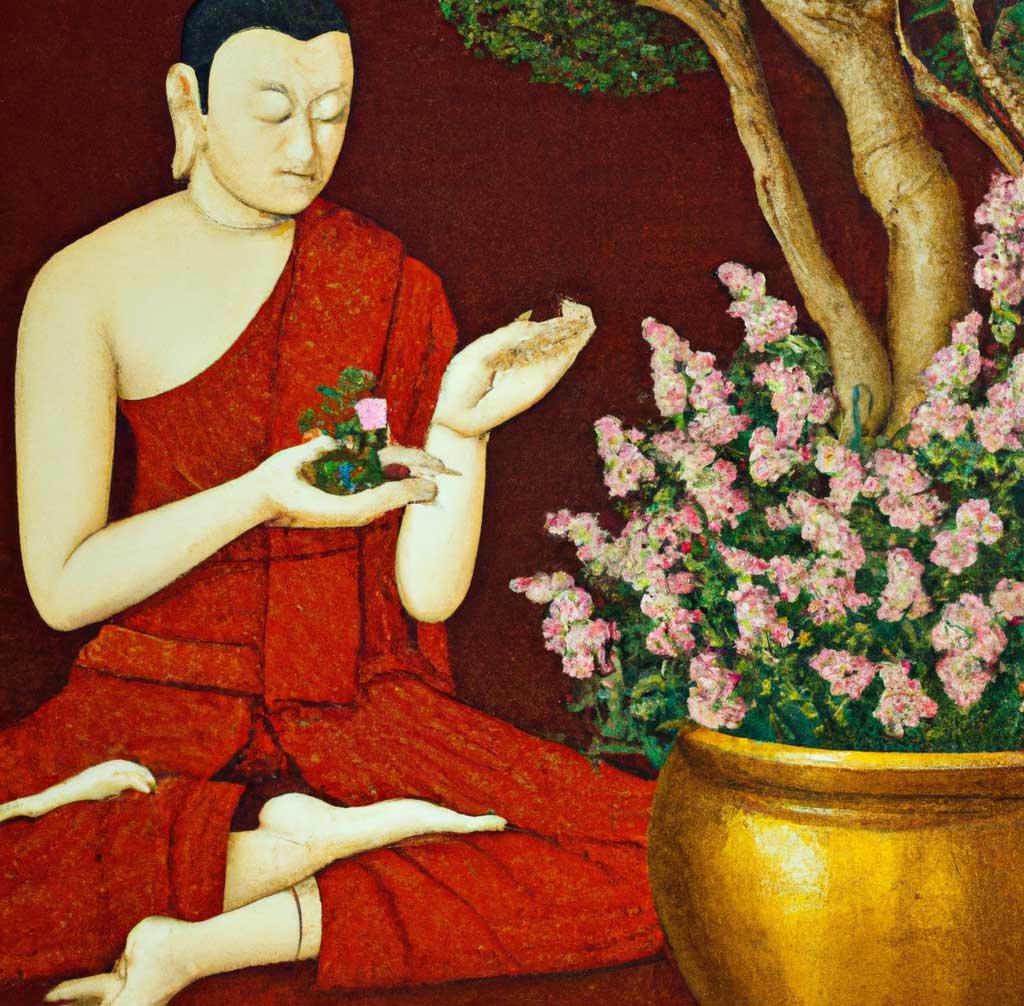Buddhism, one of the world’s most venerable spiritual traditions, offers a profound framework for understanding the nature of life, suffering, and liberation. At the heart of Buddhism are the Four Noble Truths and the Eightfold Path, teachings expounded by the Buddha, Siddhartha Gautama, over 2,500 years ago. These teachings provide a path to liberation or enlightenment, characterized by wisdom, ethical conduct, and mental discipline. As we delve into these principles, we also explore their transformative effects, the Buddhist idea of enlightenment, the significance of monastic life, and the role of Buddhism in shaping Eastern philosophy and culture.
Explanation of the Four Noble Truths
The Four Noble Truths, the fundamental teachings of Buddhism, present a diagnosis and cure for life’s inherent suffering1. The first truth, the truth of suffering (Dukkha), asserts that all existence is characterized by suffering, stress, and dissatisfaction, caused by impermanence and constant change. The second truth, the origin of suffering, identifies craving or desire (Tanha) as the root cause of suffering, as it binds us to the cyclic existence of birth and death (Samsara). The third truth, the cessation of suffering, assures us that it’s possible to bring an end to suffering. The fourth truth, the path leading to the cessation of suffering, outlines the Eightfold Path, a comprehensive program for personal spiritual development and liberation.
Introduction to the Eightfold Path and its importance
The Eightfold Path, articulated in the fourth Noble Truth, presents a systematic guide to ethical living and spiritual development2. This path comprises right understanding, right intention, right speech, right action, right livelihood, right effort, right mindfulness, and right concentration. The path is not sequential but is interconnected, and its elements need to be developed together for balanced growth. The Eightfold Path transcends the dichotomy of faith and works, theory and practice, combining wisdom, moral conduct, and mental discipline into a comprehensive approach to enlightenment. This path, when fully realized, leads to the attainment of Nirvana, the ultimate state of liberation in Buddhism.
Role of meditation in Buddhism
Meditation is an integral part of Buddhist practice and is directly related to the Eightfold Path’s aspects of right mindfulness and right concentration3. There are numerous forms of Buddhist meditation, including concentration meditation (Samatha), insight meditation (Vipassana), and loving-kindness meditation (Metta Bhavana), each serving a specific purpose. Concentration meditation aims to calm the mind and develop deep states of mental absorption (Jhana). In contrast, insight meditation is designed to cultivate understanding and insight into the nature of reality, especially the impermanent, unsatisfactory, and selfless nature of all phenomena. Loving-kindness meditation cultivates goodwill and compassion towards all beings. Together, these practices cultivate mindfulness, deepen understanding, and lead to transformative insights.
Impact of Buddhism on one’s life and transformation
Buddhism’s impact on an individual’s life can be profound and transformative4. The teachings on the Four Noble Truths and the Eightfold Path provide practical guidance for dealing with life’s challenges and uncertainties. Through mindfulness and meditation, one can develop greater self-awareness and emotional balance. The teachings on impermanence help cultivate a sense of detachment and acceptance of life’s changes, leading to greater peace and resilience. Moreover, the ethical guidelines promote compassion, honesty, and non-violence, fostering healthier relationships and a more harmonious society.
Understanding the Buddhist idea of enlightenment
In Buddhism, enlightenment, or Nirvana, represents the ultimate goal and is synonymous with the complete cessation of suffering5. Enlightenment is realized through the complete understanding and direct experience of the Four Noble Truths. It involves the eradication of all defilements and hindrances, including greed, hatred, and delusion, leading to a state of ultimate peace, freedom, and unconditional happiness. Enlightenment is not a place or a state of eternal existence but rather an experience of ultimate reality that transcends all dualities, including existence and non-existence, self and others.
Discussion on Buddhist monastic life
Monastic life plays a crucial role in the preservation and propagation of Buddhism6. Monastics, or Sangha, commit to a life of simplicity, celibacy, and disciplined practice, following a code of conduct known as the Vinaya. They dedicate their lives to studying, practicing, and teaching the Dharma, serving as guides and role models for lay practitioners. The monastic community also serves as a reminder of the possibility of liberation and the value of renunciation, providing an alternative to the conventional pursuits of material wealth and sensual pleasure.
Role of Buddhism in shaping Eastern philosophy and culture
Buddhism has played a significant role in shaping Eastern philosophy and culture7. Its teachings on karma (action and consequence), rebirth, non-self, and emptiness have significantly influenced philosophical thought in countries like India, China, Japan, and Tibet. Buddhism has also shaped arts, literature, architecture, and social structures, imbuing them with its values of compassion, mindfulness, and non-violence. Furthermore, Buddhist rituals and festivals form an integral part of cultural practices in many Eastern societies.
Conclusion
Buddhism, with its profound teachings on the nature of existence, suffering, and liberation, offers a practical and comprehensive path to enlightenment. The Four Noble Truths and the Eightfold Path, meditation, and monastic life all contribute to a transformative spiritual journey leading to peace, wisdom, and ultimate liberation. As we reflect on Buddhism’s profound impact, we appreciate not only its spiritual depth but also its significant influence on Eastern philosophy and culture.
References
Footnotes
- BBC. (2009). The Four Noble Truths. Retrieved from https://www.bbc.co.uk/religion/religions/buddhism/beliefs/fournobletruths_1.shtml ↩
- BBC. (2009). The Eightfold Path. Retrieved from https://www.bbc.co.uk/religion/religions/buddhism/beliefs/eightfoldpath_1.shtml ↩
- BuddhaNet. (2021). Meditation. Retrieved from https://www.buddhanet.net/audio-meditation.htm ↩
- BuddhaNet. (2021). Buddhism in Everyday Life. Retrieved from https://www.buddhanet.net/e-learning/buddhism/bs-s03.htm ↩
- BBC. (2009). Concepts: Enlightenment (Nirvana). Retrieved from https://www.bbc.co.uk/religion/religions/buddhism/beliefs/nirvana_1.shtml ↩
- Britannica. (2021). Sangha. Retrieved from https://www.britannica.com/topic/sangha-Buddhism ↩
- Britannica. (2021). Buddhism. Retrieved from https://www.britannica.com/topic/Buddhism ↩
